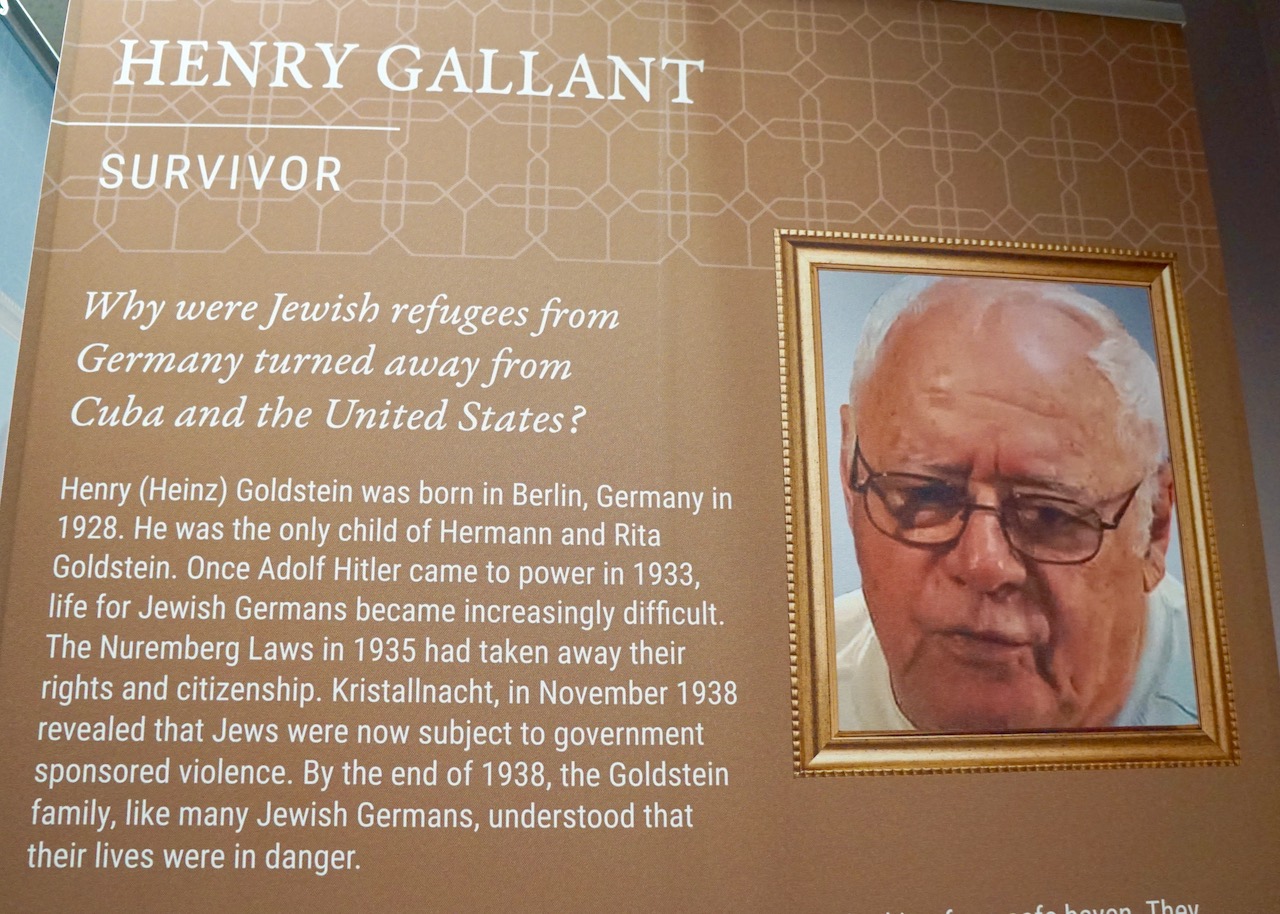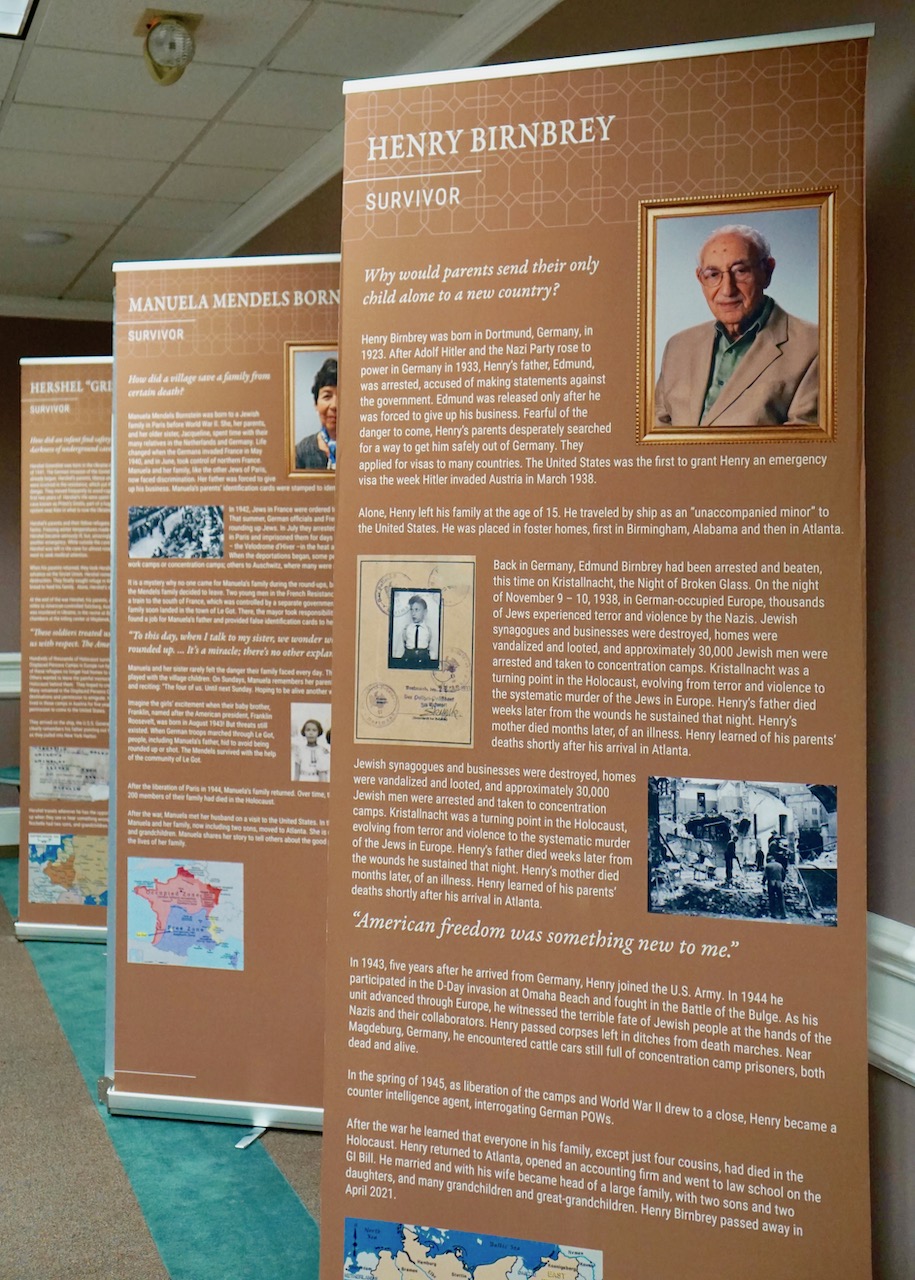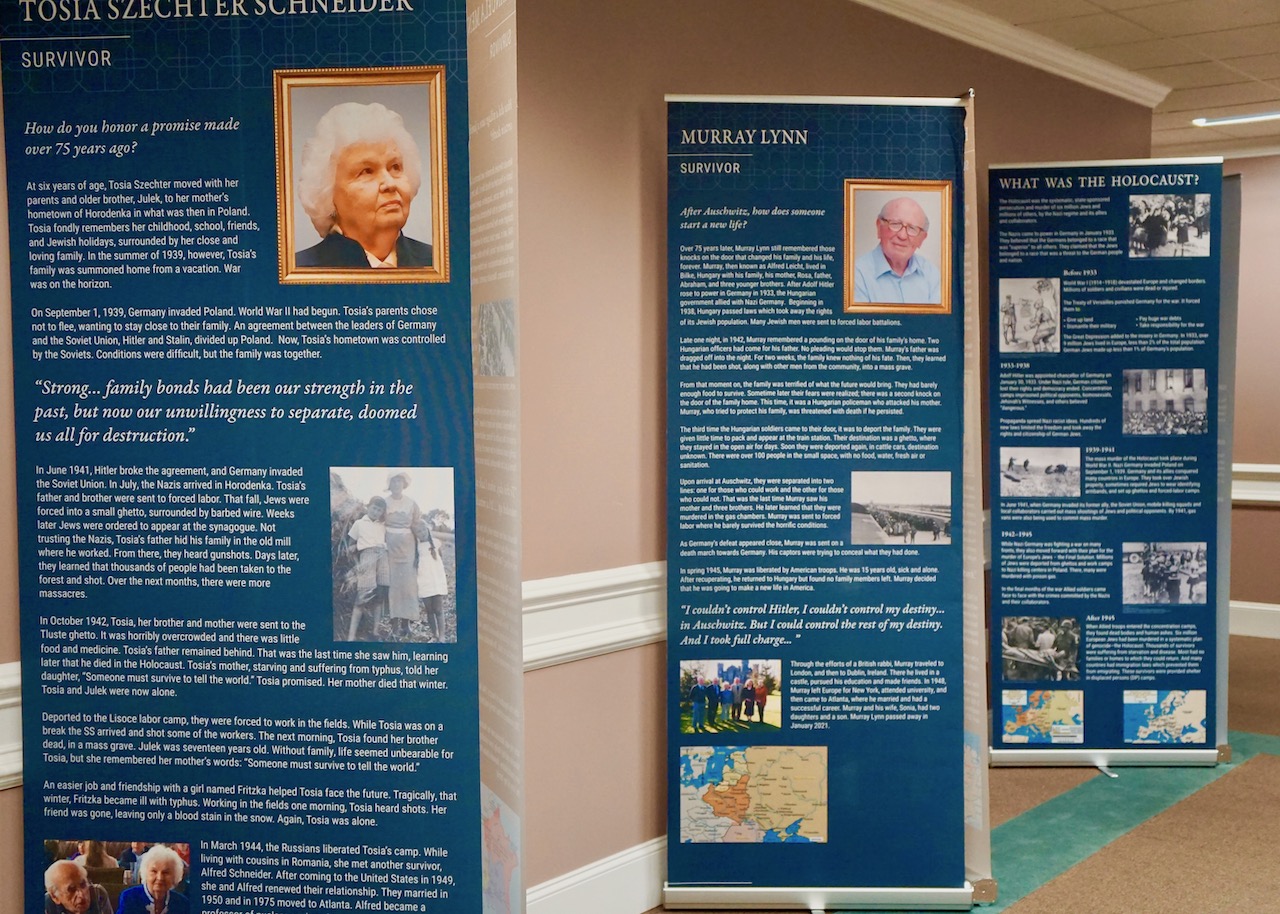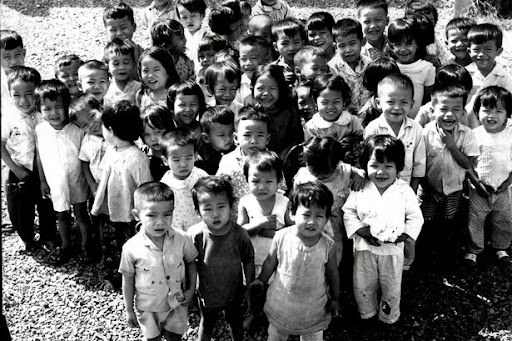
There’s an old adage that states, “Those who cannot remember the past are condemned to repeat it.” Poet Maya Angelou put a slightly different spin on it: History, despite its wrenching pain, cannot be unlived, but if faced with courage, need not be lived again.” Both statements can be aptly applied to the history of the Holocaust. What we don’t remember, study and analyze can be repeated. The history of the Holocaust was seen repeating itself in Bosnia in the early 1990s and has been seen in Russia’s treatment of Ukraine today.

One opportunity to remember past atrocities and experience the hope of those who survived is available in Clarkesville now. From July 20 through August 22, the Clarkesville Public Library is hosting the exhibit Georgia’s Response to the Holocaust in its public event room. The exhibit is sponsored by the Georgia Commission on the Holocaust (GCH), a non-partisan state agency that was appointed “to preserve the memory of the Holocaust and promote public understanding of the history.”
The exhibit is open whenever the library is open and is offered through a partnership between the GCH and Georgia Public Libraries. On Thursday, August 18, a Home School Gathering will be held for students twelve and older. An education coordinator from GCH will be on site to lead a discussion about the Holocaust with students.
Discussion guides specifically designed for students in elementary, middle, and high schools are available for all students, teachers, and parents whenever the library is open.
The Georgia Commission on the Holocaust
The Georgia Commission on the Holocaust was established in 1986 and became a permanent state agency in 1998. The agency grew from a law passed by the United States Congress in 1980 that established Days of Remembrance as the nation’s annual commemoration of the Holocaust. This year’s observance was held from April 24 through May 1.

Why is remembering the Holocaust important to the state of Georgia and the entire United States? Gregory L. Fenves, the president of Emory University, addressed that question in his address to the Georgia General Assembly in April of this year. Fenves is the son of a Holocaust survivor and he’s spent years trying to understand his father’s experiences.
In his address, Fenves reviewed the anti-semitic decisions in the past in his own school. For example, for decades after the Holocaust, he said the Emory school of dentistry “systematically marginalized its Jewish students, artificially failing them out of school.” Fenves went on to point out that this anti-semitic behavior continues into the present as well: “The Anti-Defamation League released a report just [in April] that found antisemitic incidents in Georgia surged in 2021 when compared to the previous year, reflecting a sharp upward trend across the nation and, yes, on college campuses.”
Steven Spielberg tackled telling the story of the Holocaust in his movie Shindler’s List which premiered in 1993.

In an interview about the movie’s re-release in 2014, Spielberg said he hoped students would get two key things from the movie . . . “the importance of learning history to avoid repeating colossal mistakes and the power of standing up for one another against injustice. He emphasized, “For me, the film is more important than ever, especially for the young people today, who face a country and a world where democracy is threatened. Some of the very things that led to the Holocaust are surfacing again. Hatred and violence, racism, antisemitism, xenophobia – these are current things in the 21stcentury.”
Georgia’s Response to the Holocaust is an exhibit of stories – stories of those who suffered through the Holocaust and of those who liberated survivors in German death camps across Europe. In every case, their lives were inalterably changed.
More to come . . .
Georgia’s Response to the Holocaust is the first of three Holocaust exhibits that will come to the Clarkesville Public Library. The second exhibit is entitled Witnessing the Holocaust and will be open September 19-October 19, 2023. The third exhibit is titled Fashioning the Holocaust and will be open from December 5, 2023-January 8, 2024.

The Clarkesville Public Library is located at 178 East Green Street in Clarksville, Georgia 30523. The library is open Monday-Friday from 10 am – 6 pm, and Saturday from 10 am – 2 pm. The library is closed on Sunday.
The 1979 report issued by the President’s Commission on the Holocaust provides information on the history of Days of Remembrance and the United States Holocaust Memorial Museum.






